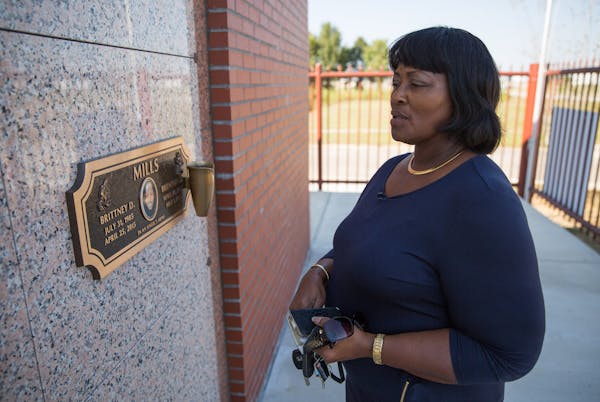WASHINGTON – Nestled against townhouses and beside a busy 7-Eleven in Fredericksburg, Va., the emerging front lines in the FBI's war on "going dark" are quietly taking shape.
There are no signs identifying the National Domestic Communications Assistance Center (NDCAC). Tall black gates surround the heavily secured structure. Dozens of cameras watch over the space outside. The entrance has no windows, and visitors must check cellphones in lockers.
The facility opened in March 2013 to help the 18,000 federal, state and local law enforcement agencies across the U.S. investigate crimes as more and more evidence is buried in suspects' digital devices or stored in technology companies' computers. That mission soon encountered new hurdles for law enforcement when three months later Edward Snowden revealed the National Security Agency was collecting bulk data about Americans, without a warrant.
After the revelations, tech companies such as Apple and Google introduced new security measures on their cellphone operating systems that allow only people who know the user's password to unlock the phone and view its contents. The companies themselves claim they no longer have the ability to do so, and the technology they created now prohibits access to encrypted information during criminal investigations — even when there's a search warrant.
As a result, police say their legal efforts to investigate serious crimes of pressing public interest are being undermined, so finding other ways to track criminal suspects has become even more important. That's where NDCAC comes in.
"If those smartphones are made inaccessible to law enforcement, despite having a warrant, then we no longer have the ability to get" incriminating evidence, said Amy Hess, assistant FBI director of science and technology.
Calls by the FBI for police to have special access to unlock encrypted evidence have been rejected by lawmakers. FBI Director James Comey said that the White House doesn't support a change.
He pledged, however, that his agency would pursue "technological and other methods" to keep up with criminals. Much of the work will be at the NDCAC.
Every day, technology firms update cellphone apps and other communications tools that criminals can use. Now, if one agency has already discovered a lawful way for police to keep up, NDCAC can test it and then deploy it to thousands of partner agencies.
Senior FBI officials say the facility will not, itself, conduct any form of surveillance. Instead, the NDCAC helps other law enforcement agencies that do track criminals. They also stress they cannot help local officials crack the encryption such as that introduced by Apple or Google on their cellphone operating systems or messaging platforms. They can suggest to investigators alternate solutions.
They also can help solve technical problems, such as when a local agency believes telephone or Internet service providers are not turning over all of the text messages or voice communications a child molester or drug dealer has made. The NDCAC can work with both the companies and the local agency to test the systems and find the problem.
The NDCAC also maintains a hot line for local, state and national law enforcement.
The NDCAC is tackling challenges in obtaining non-encrypted digital evidence from technology firms.
The computer servers belonging to tech firms such as Apple, Google, Microsoft and Twitter contain crucial evidence in criminal cases. But when police serve search warrants for e-mails, texts and images, some of them fail to respond promptly, if at all.
In 2011, before Snowden, Google and YouTube report that they provided "some data" to law enforcement in response to 93 percent of user data requests in the U.S. The company's most recent disclosure shows the rate of disclosure dropping to 78 percent (after 9,981 requests by law enforcement) in the second half of 2014.
David Matthews, who chairs the technology and digital evidence committee for the Association of State Criminal Investigative Agencies, believes technology firms that fail to comply with search warrants should face recourse.
"Not all district attorneys have the time and the bench to be able to engage with Google to call them to task," he says. "I do think there needs to be some basic legal realities in place if they aren't complying with subpoenas."
